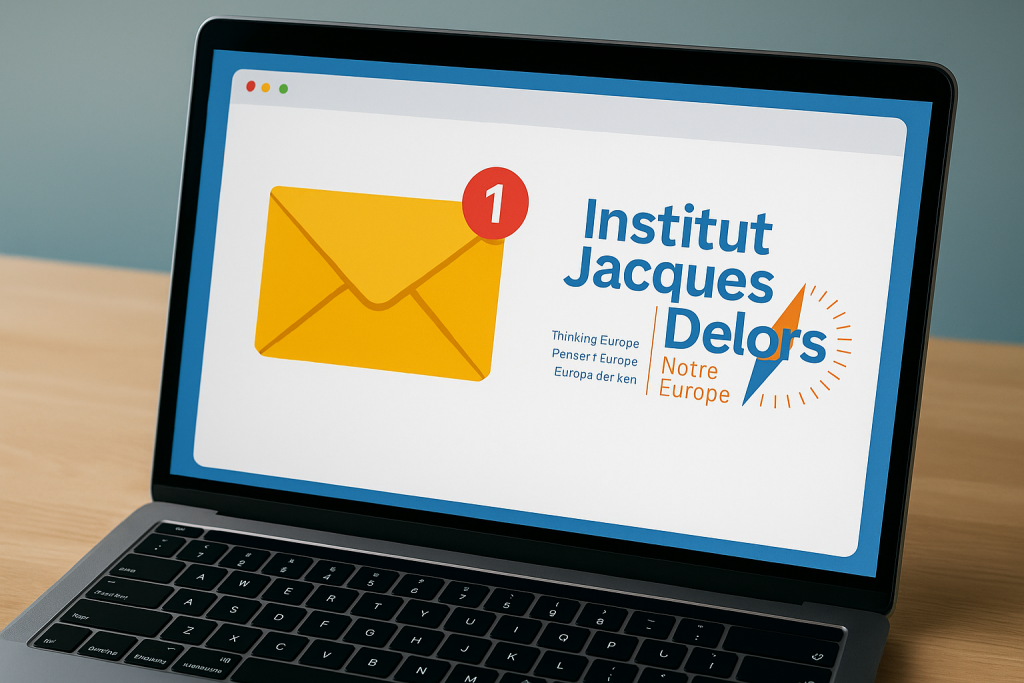Petit bloc-notes européen pour le mois
Infolettre Avril 2023

C’est une bonne approche pour le chef de l’Etat français et la présidente de la Commission européenne de se rendre ensemble à Pékin. Face à la puissance chinoise, l’Europe pèse en étant unie. Et en l’affichant clairement. L’UE ne doit pas donner prise à ses divergences internes. En visite d’Etat à Paris en mars 2019, Xi Jinping avait déjà été confronté au format alors inédit d’un sommet à l’Elysée réunissant Emmanuel Macron, Jean-Claude Juncker alors président de la Commission et la chancelière Merkel. La même année, le président français avait ensuite emmené un commissaire européen et une ministre allemande avec lui en Chine. La brutalisation des rapports de force mondiaux exige d’européaniser des relations, où le bilatéralisme garde sa place mais circonscrite.
Le Monténégro se rapproche politiquement de l’UE. Après la défaite sans appel de Milo Djukanovic à la présidentielle le 2 avril, c’est la page du clientélisme et de la corruption généralisée qu’on espère voir tourner dans ce petit pays des Balkans occidentaux. Le nouveau président Jakov Milatovic et son premier ministre Dritan Abazovic doivent transformer l’essai aux législatives anticipées du 11 juin. De quoi peut-être relancer les négociations d’adhésion avec l’UE ouvertes avec ce pays depuis 2012 ? Leur enlisement dans cette partie des Balkans a besoin d’avancées concrètes pour retrouver de leur crédibilité auprès de populations désabusées et attirées par d’autres puissances sur place. Le pays est surendetté vis-à-vis de la Chine. Une perspective assurée d’adhésion est gage de réformes structurelles, d’investissements privés et un vecteur d’apaisement des relations entre pays voisins. La normalisation dans la région, la Serbie et le Kosovo y travaillent de manière actuellement tendue mais soutenue, sous les auspices de Josep Borrell et sous pression internationale accrue. Cette capacité à faire dépasser des différends est aussi signe de l’influence européenne.
A propos, ce mois d’avril sera aussi marqué par la commémoration de l’accord du Vendredi Saint conclu entre l’Irlande et le Royaume-Uni le 10 avril 1998. Les Etats-Unis y ont été impliqués. La visite attendue de Joe Biden à Belfast éclipsera sans doute le rôle que l’Union européenne a joué dans cet accord de paix entre alors deux de ses Etats membres. L’Europe en fut un acteur engagé. Le Parlement européen servit d’arène politique au dialogue. Jacques Delors a soutenu le processus de paix par l’aide financière de la Commission à la coopération entre l’Ulster et les comtés limitrophes. La Commission a appuyé les efforts de réconciliation. Dernièrement, le respect de l’accord a été primordial dans la négociation du Brexit afin d’éviter le rétablissement d’une frontière physique sur l’île d’Irlande, qui serait préjudiciable à la paix.
La guerre, à l’autre bout du continent, perdure. Elle transforme l’Europe. Qui a dit que Bruxelles règlementait encore la taille des concombres ? Changement d’époque, aujourd’hui elle s’occupe d’obus de 155 mm, à fournir en vitesse et en quantité à l’Ukraine. Un 11e train de sanctions contre la Russie va commencer à être négocié ce mois-ci. La poursuite du conflit n’empêche pas de préparer la reconstruction du pays. Celle-ci se conjugue avec sa future adhésion à l’UE. Ce printemps, la Commission doit faire rapport oralement aux Vingt-Sept sur les progrès de Kiev aux sept conditions posées à l’ouverture des négociations d’adhésion. Une telle ouverture, décidée à l’unanimité, n’est pas exclue dès la fin de cette année. L’Ukraine force la marche. Qui saura imposer le bon tempo ? Avant que l’élargissement ne presse le pas, la prospective doit avancer sur l’organisation, les compétences et le financement de cette Union agrandie dans un monde plus dangereux. Les think tanks sont mis au défi. Plus encore quand la réalité va plus vite que les idées.




